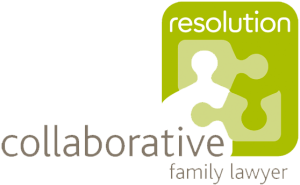What is Coercive Control?

Contact
Table of Contents
Coercive Control Law
Domestic abuse comes in many forms and it isn’t always physical. When it involves a campaign of threats, intimidation and psychological manipulation, it’s known as coercive control. Coercive control usually comes before the Family Courts in two instances: applications involving children and applications for protection from domestic violence.
Coercive control is a pattern of behaviour by someone you are personally connected with that makes you feel dependent, controlled, isolated or scared. It does not have to involve physical violence.
Examples of coercive control
- Monitoring your movements or activities
- Restricting access to money and how you spend it
- Controlling your use of technology or social media accounts
- Putting you down or calling you names
- Belittling you in front of the children, such as calling you “stupid” or “pathetic”
- Restricting your access to friends of family
- Threatening to harm you or your child
Coercive control can be carried out by men and women and can occur in any type of relationship – married, unmarried, same-sex and regardless of whether you are living together.
Is gaslighting a form or coercive control?
Yes, gaslighting is a form of coercive control. It involves manipulating someone into doubting their own beliefs or sanity, often over a long period. Gaslighting can include psychological and emotional abuse, and it is illegal under coercive control laws.
Is coercive control a crime?
Coercive control has been a crime in the UK since 2015. Abusers can face up to five years’ imprisonment, an unlimited fine or both if they are prosecuted and found guilty in court.
How common is coercive control?
Since coercive and controlling behaviour became a crime, the number of cases have steadily increased year on year in England and Wales. In 2017 there were 4,246 offences of coercive control recorded by the police. In the year ending March 2023 there were 43,774 cases compared with 41,039 in the year ending March 2022.
How is coercive control relevant to family disputes?
Coercive control cases tend to come before the Family Courts in two main ways: when someone seeks an injunction to protect them from domestic violence and in cases relating to children. For example, the court will have to decide how to approach child arrangements where coercive control is raised as an issue.
In cases involving children, the court is required to consider the welfare of a child above all else. Emotional or psychological abuse will hold weight in a Child Arrangement Order application. When someone makes an allegation of coercive and controlling behaviour, the court will gather evidence to determine if it is likely the incident(s) took place and what impact it has had or may have on the children.
The judge will take the findings into account when making child living and visitation arrangements.
How do you prove coercive control?
Proving coercive control involves gathering and presenting evidence that demonstrates a pattern of controlling and manipulative behaviour.
- Keep a log of all incidents of coercive control. The log should include dates, times, and descriptions of the behaviour. Note how these incidents made you feel and how they impacted your daily life.
- Statements from friends, family, neighbours and colleagues who have witnessed the controlling behaviour can support your case. Testimonies from counsellors and social workers can attest to the impact on your mental and physical health.
What if my partner is still being coercive toward me?
Various injunctions and orders are available to keep you and your children safe and keep a controlling ex away from your home. You can apply to the Family Court for protection even if you do not wish to bring criminal charges or if the police say there is not enough evidence to bring criminal charges.
Is coercive control a type of parental alienation?
Parental alienation occurs when one parent tries to turn the child against their other parent. For example, if a child is taught that it is OK to disrespect their parent or is encouraged to refuse to see them after a separation, this could amount to parental alienation.
This behaviour could fit a pattern of coercive control if a parent tries to intimidate or influence the other parent using the children.
Parental alienation is a complex issue. There may be real concerns that a parent is using coercive and controlling behaviour as a “tactic” to keep the other parent out of their child’s life. Conversely, your ex may allege that you are the one engaging in parental alienation by raising the issue of past controlling behaviours in your relationship, and using that to influence who the child should live with and see.
It’s important to raise allegations of coercive control with your solicitor at the beginning of family law court proceedings. Your solicitor will need time to investigate and gather evidence to support your allegations and ensure the proper applications are made.
How Osbornes can help
Coercive control is a sensitive issue with potentially far-reaching effects for you and your family. It is vital that the solicitor you appoint has an understanding of the issues and can provide you with expert legal support and the signposting you need to recover.
The experienced family lawyers at Osbornes can help you with:
- Advice for leaving an abusive partner
- Divorce proceedings
- Advice in child arrangement proceedings that involve allegations of coercive control
- Domestic violence and injunction applications
- Representation in court where necessary
If you think you, or someone you know, are experiencing coercive control and need help, please contact us today to arrange a free initial consultation with one of our solicitors. We can explain the legal processes involved and how we can assist in a safe atmosphere.
To speak with one of our solicitors, contact us by:
- Filling in our online enquiry form; or
- Calling us on 020 7485 8811
Share this article
Speak to a Solicitor about Coercive Control
Call us 0207 485 8811
Email us Send us an email and we’ll get back to you
"Lauren is hugely energetic and always pleasant to deal with."
"Lauren brings a great degree of humanity and warmth to her cases, as well as a great deal of knowledge in international abduction."
"Lauren is a very experienced children lawyer who is astute as to what the issues are."
"Osbornes Law have a very broad family practice which does all areas of family law at a high level. They have an excellent practice; they are top quality across the board."
Osbornes have been a sound firm forever. They have phenomenal work and an excellent skill set.
Osbornes have high-end partners doing high-end work. They are very impressive.
They have an excellent practice; they are top quality across the board.
Osbornes have a very broad family practice which does all areas of family law at a high level.
He is very hard-working, diligent and thoughtful in his approach. He is on top of the detail and makes strategic decisions.
He commits himself to getting the best results.
He’s a really tough litigator that you certainly want on your side. He will defend his clients to the hilt.
Mark is an immensely capable lawyer, with vast experience and a well-deserved reputation for getting the very best for his clients.
Lisa Pepper is extremely hard-working and adored by her clients. She is a very empathetic and approachable lawyer.
She’s an extremely supportive and kind lawyer and has an increasing mediation profile too
Andrew secured me the best financial settlement for my claim. He is a credit to Osbornes Solicitors.
"It has a strong and experienced team of solicitors who don’t take bad points, work sensibly to get a settlement and who you can always pick up the phone and speak to. They are good lawyers and know the strengths and weaknesses of their clients’ cases. They don’t posture and always pursue their clients cases appropriately. "
"Mark Freedman is a very capable lawyer, renowned for not being a pushover and pushing his clients’ cases as much as he can, but will always talk sensibly about settlement. He is among the best – tenacious, good judgment and tactically aware."
"Mark Freedman is a dynamic and highly experienced family lawyer who fights extremely hard for his clients and is always in their corner, thus ensuring their loyalty and confidence. In a trial you would always want him on your side."
"Bridget Thompson combines her excellent legal knowledge with a clear, succinct and robust style of advice and advocacy. Her approach clearly inspires a high degree of client confidence in her"
"She has impressed me as someone who fights my corner but also understands the importance of resolving issues without unnecessary escalation. She is calm and reassuring."
"Her mediation practice is exceptional; she is also a great solicitor and has a breadth of skill which is really useful."
"He is really experienced and wise. He has a lovely manner about him and clients feel safe with him."
"Jo Wescott is top notch and widely recognised as a rising star throughout the profession. She brings a winning combination of great judgement, an immense work ethic, and a relaxed and charming way with opponents and clients alike. Someone you want on your side”
"Osbornes is pre-eminent for family law in North London. Mark Freedman is a real rainmaker. He is an excellent lawyer and has a top-notch practice"
Mark Freedman is intelligent and personable and has a good selection of high-net work cases.
"Exceptional value for money. Highly competent and reasonably priced. Mark Freedman: one of the best in the field."
"Client-focused. Ready to fight the clients’ corner, but also ready where possible to steer client from unnecessary dispute. Mark Freedman – very experienced, with good instinct for the eventual result. Clients love him and he thinks ahead and directs the client to the best result for the client."
Mark Freedman is a serious player. A fearless family law litigator, who protects his clients’ interests passionately.
Breadth of knowledge and willingness to go the extra mile is what makes it stand out. Mark Freedman – devoted to his clients
Mark Freedman frequently takes on high-value financial and children proceedings that involve complex tax, trust and accounting issues. Sources praise the "tenacity and common sense" he brings to challenging disputes.
"Mark is very experienced, competent, good with clients and takes a sensible approach to cases. He knows exactly what he's doing."
"An exceptional outfit. They take on difficult cases, fight hard and win."
"They are an outstanding firm to work with. They are consistently impressive in their work."
"The team frequently deals with cross-border estates for high–net-worth individuals."
"Mark Freedman is a real heavyweight litigator who has dealt with some very significant cases."
"Mark Freedman boxes clever, keeps his powder dry and when it comes to the end game he negotiates a really good deal."
"Mark Freedman has a specific focus on high-net-worth divorces and finance cases where there are overseas assets and trusts."
"Lisa Pepper somehow manages to get parties to settle on matters where there isn’t much hope to start out with."
"Well-regarded family practice assisting clients with substantial matrimonial disputes and sensitive children proceedings."
"Mark Freedman draws acclaim for his work in high net worth divorce cases, including those involving company structures, family trusts and overseas assets."
"He never gives up. He fights for you to the end and has boundless energy."
Bridget Thompson heads the family team, where client care is the top priority.
Mark Freedman advises high-net-worth clients and knows his stuff.
Highly regarded for his experience as a litigation and mediation expertise, Mark Freedman is tenacious and determined. Clients really feel that he is fighting their corner.
[The Family Law department] handles significant matrimonial finance cases and complex nuptial agreements. Respected for its expertise in cross-border children law matters.
They have a really good, strong team, with the junior elements punching well above their weight. It doesn't matter who you talk to; they are all switched on."
"Mark Freedman receives a lot of instructions from clients based abroad, often relating to complex divorce proceedings. Sources say: “His main strengths are his enthusiastic passion for the job in hand and his total dedication to his clients.”
Related InsightsVIEW ALL
- 4.2.2025
Expensive Purchases in Prenups: Joint or Sole Property?
Prenuptial agreements: are expensive purchases joint or sole property? The experienced family lawyers at Osbornes Law advise wealthy and high...
Read more - 23.1.2025
Contempt of Court: Law Commission’s Reform Proposals
Reforming Contempt of Court: Law Commission’s Proposals The Law Commission had been tasked by the Government to review the...
Read more - 23.1.2025
Post-Adoption Contact With Birth Parent: Not If Adopters...
Post-Adoption Contact With Birth Parent It is not uncommon for a birth parent to seek direct contact with an adopted...
Read more - 23.1.2025
A High Bar For Challenging Adoption Orders
Challenging adoption orders Adoption orders bring considerable implications for all the parties and judges do not make such orders lightly....
Read more - 16.12.2024
Vulnerable Clients: Female Psychologist Appointed
Court Allows Female Expert for Abuse Victim in Family Case Many of our family clients are highly vulnerable, and sensitivity...
Read more - 4.11.2024
Anglo-French Divorce: Jurisdiction Guide
Anglo-French Divorce: which jurisdiction is right for you? It has been a year since we launched our Anglo-French department in...
Read more - 1.10.2024
Borrowing Money for Legal Fees in Divorce
What if I can’t afford a lawyer for my divorce? When navigating a divorce, it is widely understood that...
Read more - 27.9.2024
Navigating Divorce, Child Arrangements, and the Jewish Festivals:...
A Jewish divorce presents unique challenges, especially regarding child arrangements and upcoming festivals. Balancing differing levels of religious observance can...
Read more - 25.9.2024
Who Pays the Debts After Divorce?
Am I liable for my husband’s debts if we are separated? Debt is a significant source of stress for...
Read more - 25.9.2024
What Happens to Savings & Investments in Divorce?
Divorce often raises important questions about the division of assets, particularly savings and investments. Understanding what happens to these financial...
Read more - 12.9.2024
Landmark Decision: A Surrogate Mother’s Rights Are...
In the world of surrogacy, legal rights and parental responsibilities can be a complicated issue. Non-profit surrogacy is legal in...
Read more - 8.8.2024
Wife’s Award Increased Due to Failure To...
Understanding the Impact of Changed Circumstances on Prenuptial Agreements Prenuptial agreements have become the norm where a husband or wife...
Read more - 5.8.2024
Why Did Lauryn Goodman Take Kyle Walker to...
Introduction to the case After a judge took the unusual step of making his judgement public, we’re starting to...
Read more - 1.8.2024
Standish v Standish: Court of Appeal Decision on...
Court of Appeal reduces wife’s divorce award by £20million Dealing with financial matters on divorce can be complex. And...
Read more - 1.8.2024
Matrimonial vs Non-Matrimonial Assets
Matrimonial vs Non-Matrimonial Assets in Divorce During a divorce, people often make the mistake of assuming that everything they own...
Read more - 1.8.2024
What is a Periodical Payments Order?
Periodical Payments Orders in Divorce Throughout the process of a divorce or when unmarried couples with children split up, numerous...
Read more - 1.8.2024
What is a Lump Sum Order?
A lump sum order is a crucial element of divorce settlements that can significantly impact the financial future of both...
Read more - 1.8.2024
Common Law Partners
Common law partner meaning Common law marriage is the idea that two people who live together and act as if...
Read more - 25.7.2024
What is a Property Adjustment Order?
A property adjustment order is a key legal mechanism used during a divorce to fairly divide property and assets between...
Read more - 11.7.2024
Unmarried With Children and Splitting Up
Unmarried with Children? What are your Financial Rights? Know Your Financial Rights Under Schedule One Children Act 1989 A claim under...
Read more - 17.6.2024
What is Early Neutral Evaluation?
Early Neutral Evaluation (ENE) is a form of Non-Court Dispute Resolution where the separated couple invites a neutral third party...
Read more - 14.6.2024
What Happens If You Have a Joint Mortgage...
Understanding whether you can keep a joint mortgage after divorce is crucial, especially if both parties are still liable for...
Read more - 4.6.2024
What is Parallel Parenting? Examples, rules, and why...
Parallel parenting is a practical solution for families experiencing ongoing conflict who find traditional co-parenting unworkable. In this article, we...
Read more - 3.6.2024
Co-Parenting with a Narcissist
Can you co-parent with a narcissist? Co-parenting with a narcissist ex can be daunting, but it’s possible with the...
Read more

































